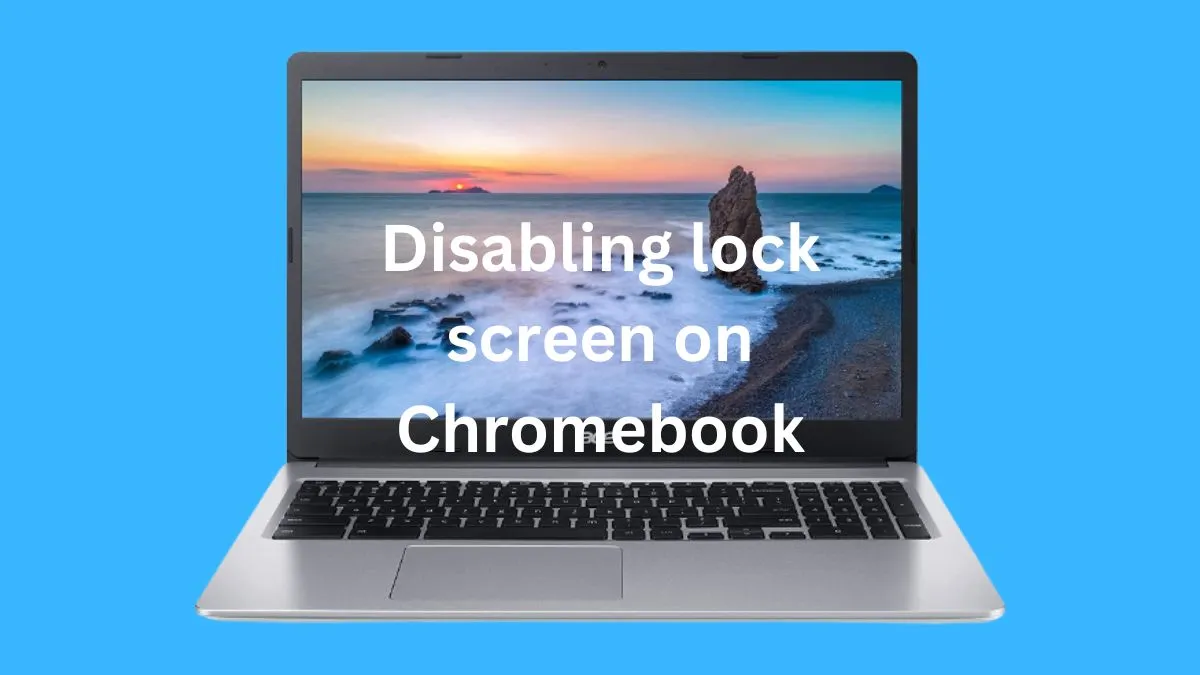Chromebooks have become increasingly popular devices due to their affordable prices and user-friendly interface. However, just like any other device, they can also experience performance issues over time.
One common issue that Chromebook users face is slow or unresponsive apps. This can be frustrating especially if you rely on these apps for work or personal use. The culprit behind this problem could be the app cache.
In this article, we will discuss what app cache is and why it’s important to clear it on your Chromebook. We will also provide you with 5 methods to manually clear app cache on your device, along with some alternative methods to try out.
What is app cache?
Before we dive into how to clear app cache on Chromebook, let’s first understand what app cache is. App cache can be described as temporary data that is stored by the apps you use on your Chromebook.
This data includes images, videos, and other information that help the app run smoothly and load faster. However, over time this cache can accumulate and take up a significant amount of storage space on your device.
Why is it important to clear app cache on Chromebook?
There are a few reasons why it’s important to regularly clear app cache on your Chromebook.
- Firstly, as mentioned earlier, accumulated app cache can take up a lot of storage space on your device. This can lead to slower performance and even cause the apps to crash.
- Secondly, clearing app cache can also help improve the speed and performance of your apps. As the cache is cleared, the app will have to reload all its data, resulting in a cleaner and faster interface.
- Lastly, clearing app cache can also help protect your privacy. App cache may contain sensitive information such as login credentials or saved images from websites. By clearing the cache, you ensure that this information is not easily accessible to anyone else who may use your device.
You may also want to know easy ways to remove apps from the Chromebook.
5 methods to manually clear app cache on Chromebook
Now that we understand the importance of clearing app cache, let’s explore 5 different methods you can use to manually clear app cache on your Chromebook.

Method 1: Clearing app cache through the Settings menu
Step 1: Start by opening the “Settings” menu on your Chromebook. You can do this by clicking on the time and battery icon in the bottom right corner of your screen.
Step 2: In the Settings menu, scroll down and click on “Advanced”.
Step 3: Under “Privacy and security”, click on “Clear browsing data”.
Step 4: A new tab will open with various options to clear browsing data. Make sure to check the box next to “Cached images and files”.
Step 5: Click on the “Clear data” button to confirm and clear the app cache.
Method 2: Clearing app cache through the Chrome browser
Step 1: Open the Chrome browser on your Chromebook.
Step 2: Click on the three vertical dots in the top right corner of your screen to open the “Menu” options.
Step 3: Hover over “More tools” and then click on “Clear browsing data”.
Step 4: Similar to Method 1, a new tab will open with various options to clear browsing data. Make sure to check the box next to “Cached images and files”.
Step 5: Click on the “Clear data” button to confirm and clear the app cache.
Method 3: Clearing app cache through Chrome OS Developer Options
Step 1: Go to your device’s Settings menu and click on “About Chrome OS”.
Step 2: Scroll down and click on “Detailed build information”. This will prompt a pop-up message, click on “OK” to continue.
Step 3: Click on “Change channel” under the “Channel” section.
Step 4: From the drop-down menu, select the option that says “Developer – unstable”.
Step 5: Once the “Developer” option is selected, click on “Restart” to apply the changes.
Step 6: After your device restarts, go back to the “Settings” menu and click on “More tools”. You will now see a new option called “Developer tools”, click on it.
Step 7: In the Developer tools menu, click on the “Clear cache” button to clear all app cache on your Chromebook.
Method 4: Clearing app cache through the Files app
Step 1: Open the Files app on your Chromebook.
Step 2: In the left sidebar, click on “Android apps”.
Step 3: Select the app you want to clear the cache for.
Step 4: Right-click on the app and select “App info”.
**Step 5:** In the App info menu, click on “Storage & cache”.
Step 6: Click on “Clear storage” or “Clear cache” to remove all app data and cache respectively.
Method 5: Clearing app cache through Powerwash
Step 1: A last resort method to clear app cache on your Chromebook is through a process called “Powerwash”. This essentially resets your device back to its factory settings.
Step 2: To perform a Powerwash, go to the Settings menu and click on “Advanced”.
Step 3: Under “Reset settings”, click on “Powerwash”.
Step 4: A pop-up message will appear, click on “Restart” to confirm.
Step 5: Your device will now restart and all app cache will be cleared.
Alternative methods to clear app cache on Chromebook
Apart from the manual methods mentioned above, there are a few alternative methods you can try out to clear app cache on your Chromebook.
- You can install third-party apps such as “Cache Cleaner” or “Cleaner for Android” from the Google Play Store to help clear app cache on your device.
- Using a file manager app, you can navigate to the “/Android/data” folder and delete the cache folders for individual apps.
In conclusion
Clearing app cache on your Chromebook is an important maintenance task that should be done regularly to ensure your device runs smoothly and efficiently.
We hope this article has provided you with useful information on how to clear app cache on Chromebook through various methods, as well as alternative options to consider.
Remember, a little bit of regular maintenance can go a long way in keeping your device in top shape! So don’t forget to clear your app cache and enjoy a faster, more secure browsing experience on your Chromebook. Happy clearing!
Additional tips for improving performance on your Chromebook
While clearing app cache can certainly help improve the performance of your Chromebook, there are a few other tips you can follow to further enhance its speed and efficiency.
- Close unnecessary tabs: Just like on any computer, having too many tabs open on your Chromebook can slow down its performance. Make sure to close any tabs that you are not actively using.
- Disable unused extensions: Similar to apps, having too many extensions installed on your Chromebook can also affect its performance. Go to the “Extensions” menu in Chrome and disable any that you do not use regularly.
- Keep your device up to date: Regularly updating your Chromebook’s operating system and apps can help improve its performance as updates often include bug fixes and optimizations.
- Use Guest mode for quick browsing: If you only need to quickly browse the internet without accessing any of your personal accounts, try using Guest mode. This will prevent any saved data or extensions from affecting your browsing experience.
- Adjust display settings: If you notice that your Chromebook is running slow, try adjusting the display resolution to a lower setting. This can help reduce strain on the processor and improve performance.
- Use the “Do Not Track” feature: In the Chrome browser, you can enable the “Do Not Track” feature which will prevent websites from tracking your browsing activity. This can help reduce data usage and potentially improve performance.
- Disable auto-uploading of files: If you use Google Drive on your Chromebook, make sure to disable the automatic uploading of files. This can help improve performance, especially if you have a large number of files stored on your device.
- Clear cookies and browsing history: Along with clearing app cache, regularly clearing your browsing history and cookies can also help improve the performance of your Chromebook. You can do this through the “Clear browsing data” option in the Chrome browser settings.
- Enable Data Saver: If you are using a cellular data connection on your Chromebook, consider enabling the “Data Saver” feature in Chrome settings. This will help reduce data usage and potentially improve performance.
- Restart regularly: Just like any other electronic device, restarting your Chromebook regularly can help improve its overall performance by refreshing the system and clearing any temporary files or processes.
By following these tips, along with regularly clearing app cache, you can ensure that your Chromebook runs smoothly and efficiently for a longer period of time.
Keep in mind that the overall performance of your device also depends on its hardware specifications, so it is always important to choose a Chromebook that meets your specific needs and usage habits.
FAQs
Where is app data and cache on Chromebook?
App data and cache can typically be found in the “Android” folder located in the Files app on your Chromebook.
Will clearing app cache delete my app data? No, clearing app cache will only remove temporary files and data used to speed up your device. Your personal data and settings will remain untouched.
Is it OK to clear memory cache?
Yes, clearing memory cache can help improve the performance of your Chromebook by freeing up storage space and removing potential glitches.
Can I clear app cache on my Chromebook without resetting to factory settings? Yes, as mentioned in this article, there are various methods to clear app cache on a Chromebook without performing a Powerwash or resetting the device to factory settings.
What happens if you don’t clear your cache?
Not clearing app cache on your Chromebook can lead to slower performance, potential glitches, and even security risks. It is important to regularly clear app cache for a smooth and efficient browsing experience.
Can I automate the process of clearing app cache?
Yes, there are some third-party apps available on the Google Play Store that offer automatic clearing of app cache on Chromebooks.





